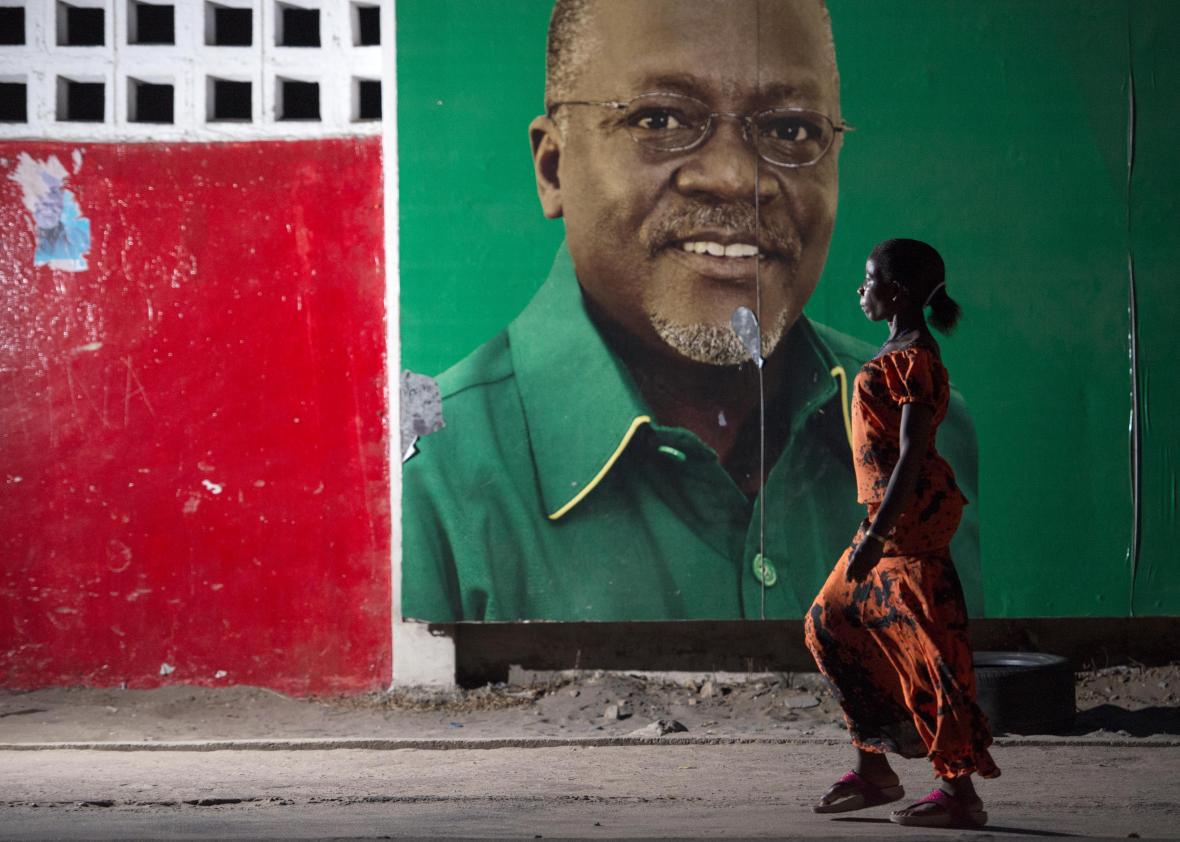DAR ES SALAAM, Tanzania—When the Tanzanian government enacted the Cybercrimes Act of 2015 early this year, the Washington Post editorial board argued that the law stifles free expression and would limit “informed policy debates ahead of the country’s elections in October.” The Post and other critics pointed particularly to Section 16 of the law, which says that publishing false or misleading information is punishable by at least six months in prison.
But many in Tanzania seemed unsure what the law would actually mean for online free speech. Before the election, Western diplomats told me it was unclear how the cybercrime law would be implemented. In many ways, the law appeared to be a collection of previously existing legislation already on the books, but most people I talked to hadn’t even seen the final version of the law. So they took a wait-and-see approach.
On Sunday—the day of a razor-thin election that left the ruling party in charge, though the opposition disputes the results—the answer became more apparent.
The opposition Chadema coalition’s exit-polling center was raided in the late hours on election night by men who identified themselves as police officers, and 38 people were detained. During the arrest, police confiscated the opposition coalition’s laptops and intimidated members of the media. On Tuesday, eight Chadema staff were charged under Section 16 of the Cybercrimes Act. The government accused the eight of publishing “inaccurate and unverified data” over Facebook, Twitter, and the party’s election management system. Now it seems clear how the cybercrime law will be used—and it sets an alarming precedent for the direction of online speech in Tanzania.
John Mallya, a Chadema legal and campaign compliance officer, told me that their election management system is internal, and the servers are located at their party headquarters. So apparently unpublished documents stored on a private server could be considered “published” in Tanzania. It also raises the possibility that the Tanzanian government may have been spying on Chadema’s servers during the run-up to the Oct. 25 election. (Edwin Kakalaki, the Tanzanian principal state attorney who argued initial proceedings on Tuesday, declined to elaborate on how the government conducted its investigation.)
It is only the third or fourth time that the cybercrime act has been used in Tanzania, according to Peter Kibatala, the Chadema defense attorney representing the eight accused. Highlighting how much the cybercrime law has been such a mystery in Tanzania, Kibatala said during the initial proceedings that there was no such thing as Section 16 of the cybercrimes act—until he was corrected by the state attorney.
Across Africa, governments have been cracking down on online expression. Eritrea was named the most censored country in the world by the Committee to Protect Journalists in 2015, beating out the hermit kingdom of North Korea. Fourth on the CPJ’s list is Ethiopia, whose government has sought control over Internet access and private media. Four Ethiopian journalists from Zone 9, a popular blog that has criticized the government, were recently released after spending 18 months in prison for “working with foreign organizations and rights activists and using social media to destabilize the country.” South Africa also recently introduced legislation that the Electronic Frontier Foundation called “a serious blow to human rights” and “Africa’s worst new censorship law.”
In Tanzania, the outcome of the cybercrime case regarding the eight political opposition staffers is unclear—the judge set the next court date for Friday, Oct. 30.
